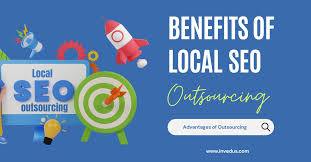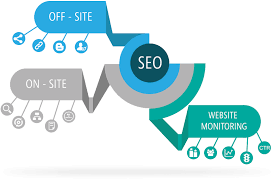Exploring the Significance of Crawling in SEO Strategies
The Importance of Crawling in SEO
One of the fundamental aspects of Search Engine Optimization (SEO) is crawling. Crawling is the process by which search engine bots systematically browse the internet to discover and index web pages. This crucial step allows search engines like Google to understand the content and structure of websites, ultimately determining their ranking in search results.
How Crawling Works
Search engine crawlers, also known as spiders or bots, follow links from one page to another, collecting information about each webpage they visit. They analyse the content on these pages, including text, images, and other media, to determine relevance and quality. By crawling websites regularly, search engines can update their indexes with fresh information and ensure that users receive up-to-date search results.
The Impact on SEO
Effective crawling is essential for good SEO performance. When search engines can access and index your website’s pages easily, they are more likely to rank your site higher in search results. Ensuring that your site is crawlable involves factors such as having a clear site structure, creating an XML sitemap, using internal links effectively, and avoiding duplicate content issues.
Common Crawling Issues
Despite its importance, crawling can sometimes encounter challenges that affect a website’s visibility in search results. Issues such as broken links, slow loading times, improper use of robots.txt files, or blocked resources can hinder crawlers from fully indexing a site. Addressing these problems promptly can help improve a site’s crawlability and overall SEO performance.
Conclusion
In conclusion, crawling plays a vital role in SEO by allowing search engines to discover and index web pages effectively. Website owners must ensure that their sites are optimised for crawling to enhance their online visibility and rankings. By understanding how crawling works and addressing any potential issues that may arise, businesses can improve their SEO efforts and attract more organic traffic to their websites.
7 Essential Tips for Optimising Website Crawling in SEO
- Ensure your website is easily crawlable by search engine bots.
- Use a sitemap to help search engines discover and index your pages.
- Optimise your robots.txt file to control which areas of your site are crawled.
- Avoid duplicate content issues that can arise from improper crawling.
- Monitor crawl errors in Google Search Console and fix them promptly.
- Regularly update and add fresh content to encourage frequent crawling of your site.
- Check for broken links and fix them to maintain a healthy crawl budget.
Ensure your website is easily crawlable by search engine bots.
To enhance your website’s search engine optimisation (SEO) performance, it is crucial to ensure that your website is easily crawlable by search engine bots. By creating a clear site structure, using internal links effectively, and avoiding common crawling issues such as broken links or blocked resources, you can facilitate the smooth indexing of your web pages. Ensuring that search engine bots can navigate and understand your website’s content will improve its visibility in search results and ultimately drive more organic traffic to your site.
Use a sitemap to help search engines discover and index your pages.
Utilising a sitemap is a highly effective strategy in SEO to aid search engines in discovering and indexing your web pages efficiently. By providing a structured map of your website’s content, you make it easier for search engine crawlers to navigate through your site and understand its hierarchy. A well-organised sitemap not only ensures that all important pages are indexed but also helps search engines prioritise the most relevant content for users’ search queries. Incorporating a sitemap into your SEO strategy can significantly enhance the visibility and accessibility of your website in search results.
Optimise your robots.txt file to control which areas of your site are crawled.
To enhance your website’s crawlability and SEO performance, it is crucial to optimise your robots.txt file effectively. By configuring your robots.txt file, you can specify which areas of your site search engine crawlers are allowed to access and index. This level of control ensures that important pages are prioritised for crawling while preventing bots from wasting time on irrelevant or sensitive content. Optimising your robots.txt file is a strategic way to guide search engine bots through your site efficiently, ultimately influencing how your web pages are ranked in search results.
Avoid duplicate content issues that can arise from improper crawling.
To enhance your website’s SEO performance, it is crucial to avoid duplicate content issues that may arise from improper crawling. When search engine bots encounter duplicate content across different pages of a website, it can confuse them and impact the site’s overall visibility in search results. By ensuring proper crawling practices and addressing any duplicate content issues promptly, you can improve your site’s crawlability and prevent potential SEO setbacks.
Monitor crawl errors in Google Search Console and fix them promptly.
It is crucial to monitor crawl errors in Google Search Console and address them promptly to maintain a healthy website performance in terms of SEO. By regularly checking for crawl errors, such as broken links or blocked resources, website owners can ensure that search engine bots can access and index their content effectively. Promptly fixing these issues not only improves the site’s crawlability but also enhances its overall visibility in search results. Keeping a close eye on crawl errors and taking swift corrective action is key to optimising a website for better SEO performance.
Regularly update and add fresh content to encourage frequent crawling of your site.
To enhance the crawling frequency of your website, it is crucial to regularly update and add fresh content. Search engine crawlers are more likely to revisit your site when they detect new or updated content, leading to more frequent indexing and potentially higher rankings in search results. By consistently providing valuable and relevant information to your audience, you not only improve the user experience but also signal to search engines that your site is active and worth revisiting. This proactive approach to content updates can significantly boost your site’s visibility and SEO performance over time.
Check for broken links and fix them to maintain a healthy crawl budget.
To maintain a healthy crawl budget and ensure optimal indexing of your website by search engines, it is essential to regularly check for broken links and promptly address them. Broken links not only disrupt the user experience but also hinder search engine crawlers from navigating through your site efficiently. By fixing broken links, you not only improve the overall user experience but also help search engines crawl and index your web pages effectively, ultimately enhancing your website’s SEO performance.








